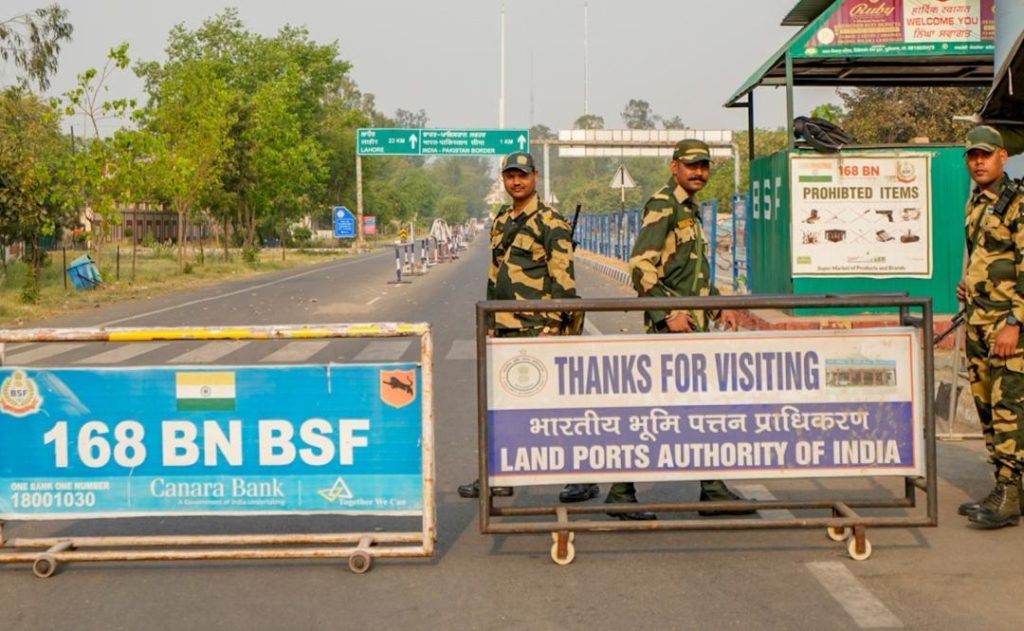
Attari-Wagah Border between India & Pakistan Completely Closed
In a sudden and unprecedented move, the Attari-Wagah border between India and Pakistan has been completely closed, according to a report by PTI on Thursday. This means that no person from either side was able to cross over to the other side on Thursday, marking a significant escalation in tensions between the two nations.
The closure of the border comes after Pakistan shut the crossing point and stopped accepting its citizens who were deported by India. This move was reportedly taken in response to the mass deportations of Pakistani nationals by India, which followed the recent Pahalgam terror attack that claimed the lives of 26 tourists.
The Pahalgam terror attack, which occurred on October 8, was a devastating incident that shook the nation. The attack, which was carried out by a group of terrorists, targeted a bus carrying tourists in the Kashmir Valley. The incident sparked widespread outrage and condemnation, and India has since taken a tough stance against Pakistan, accusing it of supporting terrorism and extremism.
The closure of the Attari-Wagah border is a significant development in the already tense relationship between India and Pakistan. The border, which is one of the most heavily used crossing points between the two nations, has been a symbol of the complex and often fraught relations between India and Pakistan.
The closure of the border is likely to have significant economic and humanitarian implications for both countries. The border is a crucial point for trade and commerce, and the closure of the crossing point is expected to disrupt the flow of goods and services between the two nations. Additionally, the closure of the border may also have humanitarian implications, as people on both sides of the border may be affected by the sudden disruption to their daily lives.
The move by Pakistan to shut the border and stop accepting deported nationals is seen as a retaliatory measure in response to India’s decision to deport Pakistani nationals. India has been deporting Pakistani nationals who were found to be involved in anti-India activities or had links to terrorist organizations. Pakistan, in turn, has accused India of violating its sovereignty and has demanded that India provide proof of the alleged ties between the deported nationals and terrorist organizations.
The closure of the Attari-Wagah border is also seen as a significant escalation in tensions between India and Pakistan. The two nations have a long history of conflict and tensions, and the closure of the border is likely to further escalate the situation. The move is also seen as a blow to the already fragile peace process between the two nations, which has been stalled for several years.
In recent years, India and Pakistan have been engaged in a series of diplomatic and military tensions, which have been fueled by terrorist attacks and border skirmishes. The situation has been particularly tense since the Pulwama terror attack in February 2019, which killed 40 Indian security personnel. The attack was widely condemned, and India launched a military operation against terrorist camps in Pakistan, which resulted in the deaths of several Pakistani military personnel.
The closure of the Attari-Wagah border is likely to have far-reaching implications for the region and the world. The situation is being closely watched by international powers, which are concerned about the potential for a conflict between two nuclear-armed nations. The United Nations and other international organizations have called for restraint and dialogue between India and Pakistan, and have urged both nations to work towards a peaceful resolution to the crisis.
In conclusion, the closure of the Attari-Wagah border between India and Pakistan is a significant development that reflects the tense and often fraught relations between the two nations. The move is likely to have significant economic and humanitarian implications, and is a major escalation in tensions between the two nations. The situation is being closely watched by international powers, which are concerned about the potential for a conflict between two nuclear-armed nations.






